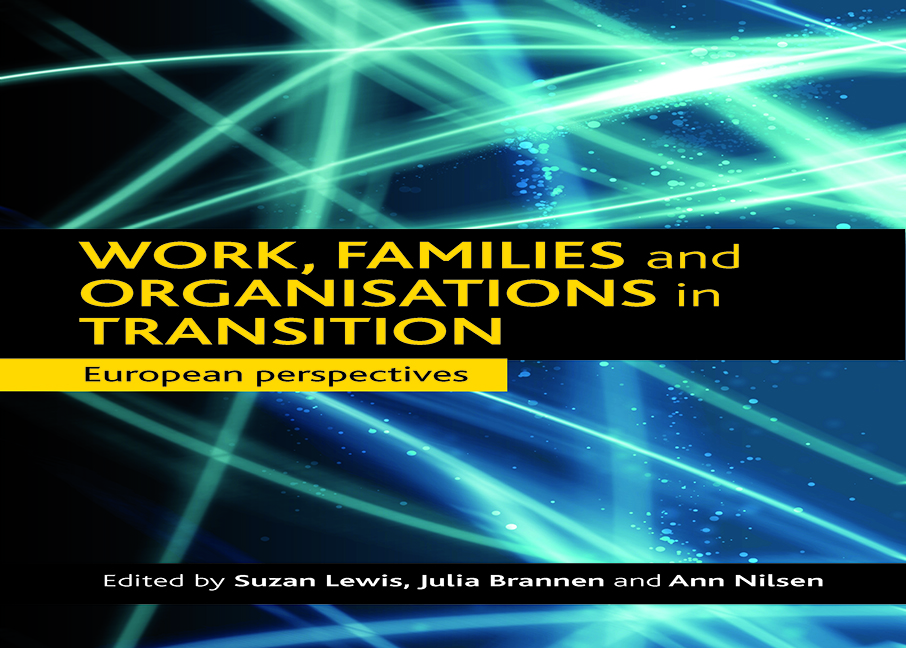Book contents
- Frontmatter
- Dedication
- Contents
- Acknowledgements
- Notes on contributors
- one Work, family and organisations in transition: setting the context
- two Research design and methods: doing comparative cross-national research
- Part One Public sector organisations
- Part Two Private sector organisations
- Part Three Comparisons
- Appendix
- References
- Index
one - Work, family and organisations in transition: setting the context
Published online by Cambridge University Press: 16 July 2022
- Frontmatter
- Dedication
- Contents
- Acknowledgements
- Notes on contributors
- one Work, family and organisations in transition: setting the context
- two Research design and methods: doing comparative cross-national research
- Part One Public sector organisations
- Part Two Private sector organisations
- Part Three Comparisons
- Appendix
- References
- Index
Summary
Most young Europeans expect to combine paid work and parenting at some time in their lifecourse, although they do not always have a clear idea about how easy or difficult it will be to manage, nor what support might be necessary (Brannen et al, 2002). Indeed, it is difficult for them to do so, as people's circumstances vary and in some national contexts there are no clear normative models that apply to both mothers and fathers. Most of the research on working parents’ needs and experiences focuses either on national public policy and regulation or on workplace policies, but important as these are, they are only a part of the overall picture. National context matters as does economic, social and ideological context. Labour market and workplace policies can make a difference to parents’ lives (Lewis, 1997; Brandth and Kvande, 2001, 2002; Haas et al, 2002; Allard et al, 2007). However, changing economic climates and global trends also have a part to play in shaping practices and cultures in specific workplaces in specific contexts and societies.
Policies and practices to support the reconciliation of work and family or ‘work–life balance’ in Europe, whether stemming from government regulation or voluntary organisational initiatives, are being implemented at a time when employing organisations are undergoing massive and rapid changes in the context of global competition and efficiency drives. In emerging economies in postcommunist societies, huge social and economic transformations are taking place. Moreover, whatever the context, the experiences of parenthood are different for men and women while education and occupational level also influence parents’ opportunities to negotiate work and family boundaries. Gender ideologies, the domestic division of labour and kinship networks all play a part too in this complex web of structural and cultural supports and constraints for employed parents.
In this volume we recognise the importance of several interacting and dynamic layers of context on employees who are attempting to reconcile the ever-growing demands of paid work with the equally demanding tasks of parenting young children. We also explore the ways in which managers manage employees’ need for work–life balance while also fulfilling the organisation's goals of profitability and/or efficiency. We focus primarily on the workplace and the changes taking place therein, but we also touch on the other layers of context that influence and are influenced by employing organisations.
- Type
- Chapter
- Information
- Work, Families and Organisations in TransitionEuropean Perspectives, pp. 1 - 16Publisher: Bristol University PressPrint publication year: 2009
- 1
- Cited by



